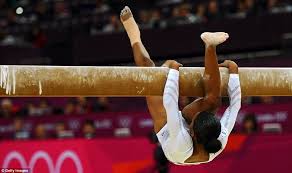Why the free fall in support for the Olympics
Notwithstanding articles that pass the blame off on John Fish, then Doug Rubin’s Northwind Strategies, then everybody else on the local committee, the striking fall in support for the Olympics has little to do with any one person.
It has to do with trust.
While not for or against the Olympics at this point, I will admit that, as is the case with any big bold project, we believe it is important to remain skeptical early and to ask lots of questions. That was true of the debate over the South Boston convention center in the 1990s, when we came out in opposition to the project, or more recently casinos, where we limited our work to questions surrounding the public trust and transparency (e.g., here, here and here).
Mega-projects always face three basic realities: (1) there are huge opportunity costs (trade-offs) when you go forward with mega-projects, (2) the track record does not bode well for the public fisc or for actual job and economic impact, and (3) the impact of this sort of mega-billion-dollar project is not in the hoopla but in the mundane details that come after the decision to hit go is made.
In the case of the convention center project in the 1990s, there are all sorts of trade-offs to consider. What if we had rezoned the area to allow for the construction of densely developed housing? Or expanded/enhanced the Hynes convention center instead of building a second public exhibition center in South Boston? You could think of thousands of others, including what if we had used regional hotel taxes to improve the MBTA?
Trade-offs with the Olympics are legion as well.
The basic pro-games argument thus far amounts to an assertion that we don’t have to think about trade-offs, because the international games will grow the economic pie and alleviate the need for either-or decisions.
More on that another day.
The immediate question on the Olympics is whether it will survive even the coming year, or whether as the Wall Street Journal suggested the US Olympic Committee may pull the games back from Boston.
A few new faces will not rebuild the trust that has been lost. My feeling is that it is going to be really hard for the local group of proponents to regain confidence unless the shakeup is deep and they rework significant parts of their proposal. Here is why.
At the level of leadership, few of the people most directly affected by the Olympics—and whose cooperation would be required—feel that the proposal is “real.” Whether in universities and the development world, the people I have talked to will in person raise an eyebrow, or even roll their eyes; on the phone, it’s lots of hesitation and the I’m-trying-to-be-kind chuckle. None believe what the local Olympic committee is selling has any chance of moving forward.
At a more popular level, the local Olympic Committee lost considerable credibility with their early statements about the how all of the transportation projects included in the Olympic bid already had funding lined up.
Bad misrepresentation though it was, this did not in and of itself change people’s minds. Rather, what did it was the connection of those statements with the subsequent free fall in the T’s performance. The mismatch between the rhetoric of the bid met with the virtual shutdown of the Greater Boston region. The timing was not the bid proponents’ fault, but the mismatch in reality was.
Especially given the bromides we heard about the T’s and the state’s ability to expand transit services to meet the needs of the Olympic proposal – people just don’t believe it.
The stuff about Deval’s pay rate, or the involvement and pay level of John Walsh and Northwind – that’s all a sideshow, but a sideshow that builds on the meme of untrustworthiness. They are faux pas that an able organizer would not make, but in and of themselves they are the not fatal to the effort.
The critical moment was the T. All roads toward the Olympics flow through the T—and getting it in good working order again.
Follow me on twitter at @jimstergios, visit Pioneer’s website, or check out our education posts at the Rock The Schoolhouse blog.



